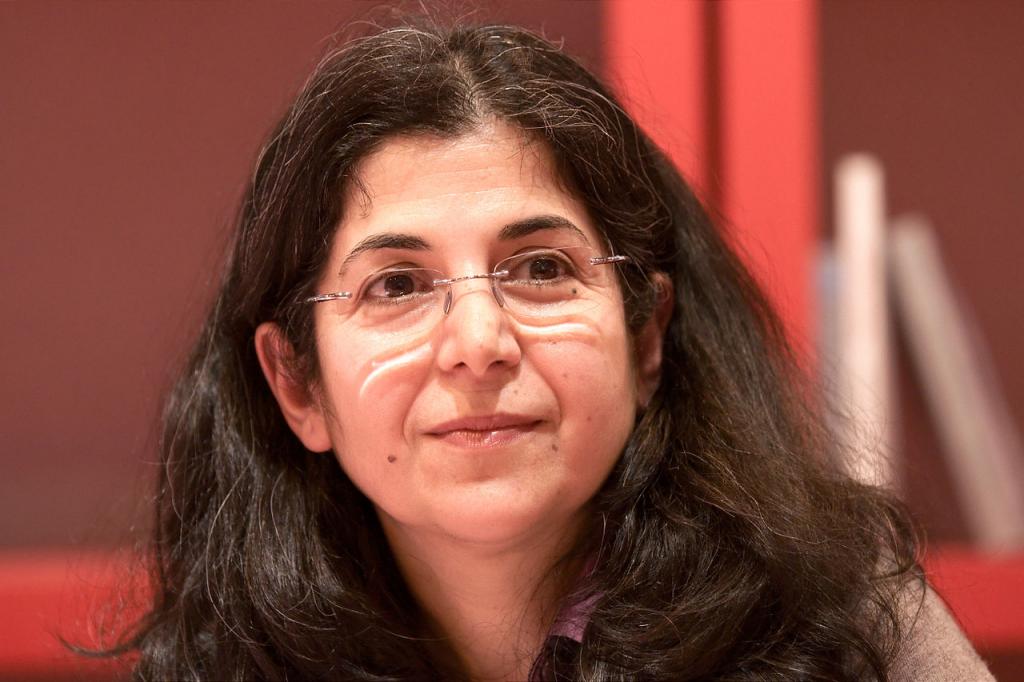[english version below]
La République islamique d'Iran s'attaque frontalement à l'anthropologie. Début juin, Fariba Adelkhah, directrice de recherche à Sciences Po-Paris, a été arrêtée à Téhéran. Elle est toujours incarcérée à la prison d'Evin (voir son portrait ci-dessous). Il semblerait qu'une nouvelle arrestation d'anthropologue soit survenue en Iran le 11 juin : celle de Kameel Ahmady.
Arrêtée au tout début du mois de juin en Iran, Fariba Adelkhah, directrice de recherche à Sciences Po, est née en 1959, à Téhéran, dans une famille de la petite classe moyenne originaire du Khorassan. Ce détail n’est pas anecdotique. Fariba Adelkhah a consacré certains de ses travaux à cette région, qui reste l’un de ses terrains favoris.
Le Khorassan lui a aussi fourni un tremplin pour déployer des recherches sur l’Afghanistan voisin, dans les années 2010. En effet, il vit en symbiose avec ce pays au point de constituer avec lui un « Grand Khorassan » sur lequel Fariba Adelkhah a très tôt attiré l’attention.
Pour des raisons historiques : l’ouest de l’Afghanistan a fait partie des « pays protégés » des dynasties iraniennes jusqu’au milieu du 19e siècle, et des Hazara se sont réfugiés dans l’empire qajar, à la fin du 19e siècle, à la suite de la politique d’extermination conduite à leur encontre par Kaboul. Et aussi, bien sûr, pour des raisons économiques et sociales plus contemporaines, liées aux infrastructures routières et ferroviaires, au commerce, à la contrebande, au trafic de narcotiques, à l’immigration, aux flux de réfugiés qu’ont engendrés les différentes phases de la guerre en Afghanistan depuis 1980.
La levée du chef d’accusation d’espionnage à l’encontre de Fariba Adelkhah, que vient d’annoncer son avocat à Téhéran, confirme que cette dernière – et Roland Marchal – sont détenus de manière arbitraire depuis juin sur la base de leurs seuls travaux scientifiques, assimilés de manière indue à de la propagande contre la République islamique, selon une incompréhension absolue de ce qu’est la recherche, comme l’avait déploré la même Fariba Adelkhah dans sa lettre ouverte au président Ahmadinejad en 2009.
Nous le disons depuis le début de cette triste et scandaleuse affaire : Fariba Adelkhah et Roland Marchal sont des prisonniers scientifiques, dont nous demandons la libération inconditionnelle et immédiate.
Lisez dans son integralité (PDF, 2Mo) le portrait scientifique de Fariba Adelkhah, écrit par notre Professeur Jean-François Bayart.
Lire l'article sur Fariba Adelkhah paru dans Le Monde le 13 janvier 2020.
* * *
Arrested at the beginning of June in Iran, Fariba Adelkhah, Director of Research at the Paris Institute of Political Studies (Sciences Po), was born in 1959 in Tehran, to a middle class family originally from Khorassan.
This detail is not incidental. Fariba Adelkhah has devoted a great deal of her work to this region, which remains one of her favourites for field research.
In the 2010s, Khorassan also provided her with a springboard from which to develop her research on neighbouring Afghanistan. This is because, as Fariba Adelkhah has long emphasised, Khorassan has a symbiotic relationship with that country, to the extent that they together constitute a ‘Greater Khorassan’.
This is partly for historical reasons: the west of Afghanistan was, until the mid-nineteenth century, among the ‘protected lands’ of the Iranian dynasties, and the Hazara of Afghanistan took refuge in the Qajar empire at the end of the nineteenth century following an extermination policy carried out against them by Kabul. And it is also, of course, for more contemporary economic and social reasons, linked to road and rail infrastructure, to trade, to smuggling, to the narcotics trade, to immigration and to the waves of refugees which the various phases of conflict in Afghanistan since 1980 have generated.
The lifting of the espionage charge against Fariba Adelkhah, just announced by her lawyer in Tehran, confirms that the latter - and Roland Marchal - have been arbitrarily detained since June on the basis of their scientific work alone, unduly assimilated to propaganda against the Islamic Republic, according to an absolute misunderstanding of what research is, as deplored by Fariba Adelkhah in her open letter to President Ahmadinejad in 2009.
We have been saying this since the beginning of this sad and scandalous affair: Fariba Adelkhah and Roland Marchal are scientific prisoners, whose unconditional and immediate release we call for.
Read the whole article (PDF, 2MB) about Fariba Adelkhah, written by Professor Jean-François Bayart.
Photo credit: Georges Seguin


